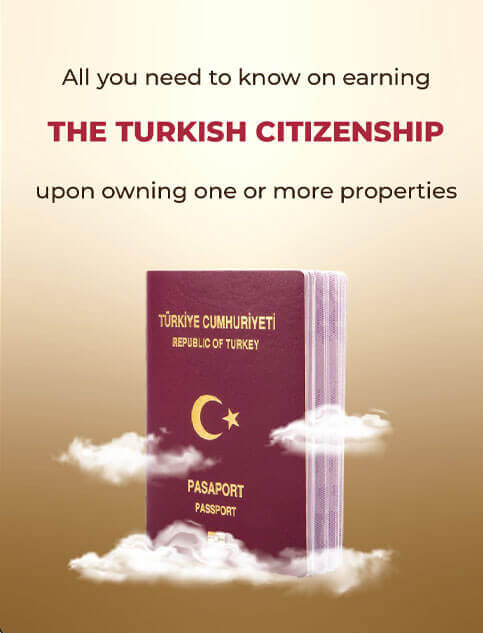
The philosophy of tax in Turkey has witnessed a sort of development in the recent years. In the midst of this development, there have been two trends. The first one can be considered as the traditional trend; they actually call for increasing the taxes to accumulate financial resources for fulfilling the needs of the citizens, as well as bankrolling different sectors of the country. The second trend on the contrary calls for decreasing taxes for specific merchandise and services. They actually base their view on the fact that reducing taxes will come up with fruitful outcomes in supporting the Turkish Economy exceedingly at the level of investments. Thereby, considerable resolutions and incentive implementations were conducted based on tax exemption strategy. The following paragraphs of this article show in details the types of real estate taxes in Turkey.
-
Real estate stamp tax:
Real estate stamp tax usually occurs when the real estate property is changed (the stamp). It is paid every time when registering the property titles (property documents). The value of this tax is 4% of the declared amount estimated for the property. And it is paid by both the seller and the buyer fifty-fifty. However, the actual procedure in most cases is that it is the buyer who pays all the value of real estate stamp tax.
-
Annual real estate tax:
Once you buy a real estate in Turkey, either you are a Turkish citizen or a foreigner, there is an annual property tax “emlakvergi” that you have to pay to the local municipality. The value of this tax is 0.0003% of the property’s estimated price. For example, If you own a real estate estimated at $100 000, the value of the tax to be paid is only $300.
-
Real Estate Profits Tax:
The capital’s profits tax or what is known locally as “girirvergi” must be paid when you sell a real estate in Turkey. If you sell the property during the five first years after the purchase, your profit will submit to this tax. The law does not specify the responsible party to pay this tax. Therefore, it is important that you include this in your negotiations.
If the real estate in Turkey is sold after the five-years period from the purchase is finished, you will not be charged any taxes as set forth by the law. Thereby, Damas Real Estate Company strongly advises their valuable clients not to sell their real estate in Turkey until the five years are finished after the purchase. By doing so, the real estate owner will avoid undertaking any taxes. Besides, the older the real estate is, the higher the price will be which will make good profit for the seller.
Capital gains are the profits from the sale of real estate:
The profit is calculated through figuring the difference between the price of the real estate when first purchased and its price when sold. For more clarification, let us consider this example: When first purchasing an apartment in Turkey in 2013, the price was $100 000. (and the price declared when the stamp tax was paid is $60 000). This real estate later is sold for $130 000 (the declared price when the stamp tax is paid is $80 000). The difference now between the declared prices is $20 000.
Tax on rental returns is similar to capital gains tax. That is so because rental return is the income that you earn from your personal real estate in Turkey after paying the allowed expenditures such as maintenance, etc. The amount to be paid as Tax is then determined afterwards. The tax is calculated through tax segments at 15%, and it can rise to 35% on the net income that exceeds 40%.
-
Turkey cancelled the Value Added Tax on real estate price:
It is a commonly known fact that when the Value Added Tax is applied in any country, the prices of real estate rise. In that the designated company adds the amount of the tax to the price of the real estate. So the buyer pays more.
The first application of the Value Added tax on real estate In Turkey was fist issued in 2013. It was issued only for operations of real estate sales in Turkey. The must-pay value at that time was 8%.
But in 2017, the Turkish Parliament ratified one of the new laws which definitely exempt the foreign buyers from the Value Added Tax when they own a real estate in Turkey. This law is also applicable to the Turkish citizens who have been working outside the country for 6 months. Moreover, the law exempts the foreigners who wish to purchase a real estate for the purpose of making a project or a commercial company.
Recently, a report stated that the percentage of real estate sale in Turkey has risen to unprecedented rates after applying the law of exempting foreigners from the value added tax when purchasing real estate in Turkey since the start of 2017. The increase reached 13% contrasted to the accustomed rate in 2016. And fortunately, this rate increase is still heading up according the latest indicators of real estate investments in Turkey.
 EN
EN  AR
AR  FA
FA  RU
RU  FR
FR 
 TRY
TRY  USD
USD  EUR
EUR  GBP
GBP  SAR
SAR  IQD
IQD  AED
AED  KWD
KWD  OMR
OMR  QAR
QAR  BHD
BHD  JOD
JOD  DZD
DZD  YER
YER 
